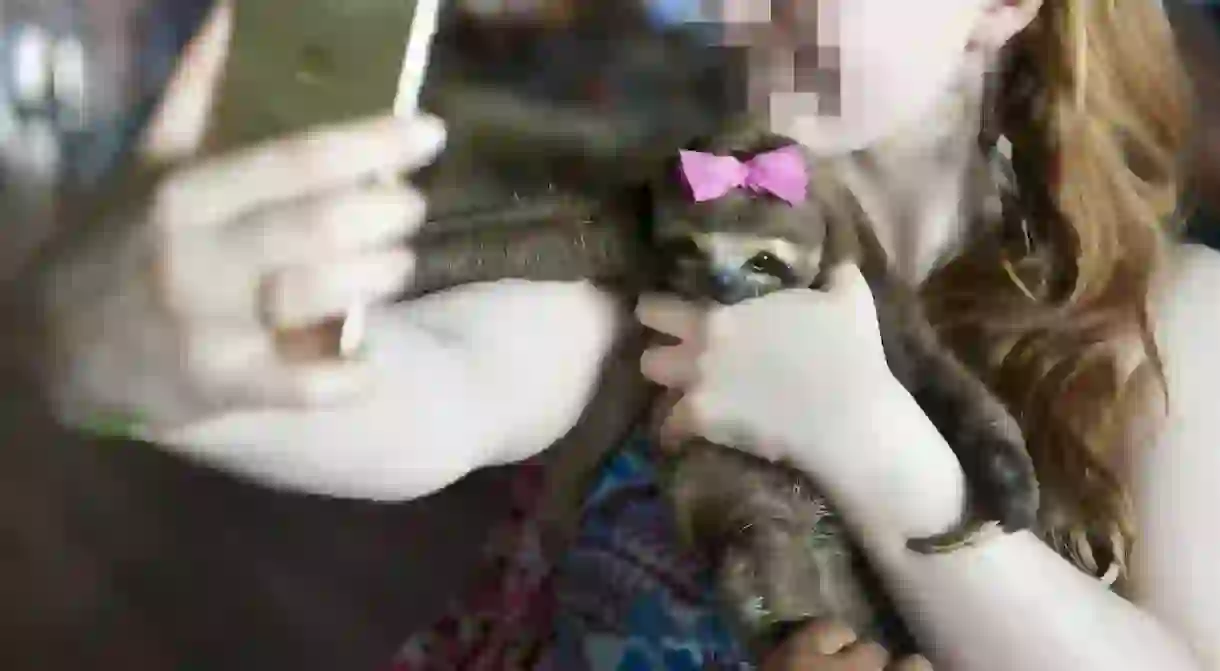Instagram to Crack Down on "Bad Animal Selfies" With New Alert System

It was recently revealed that more than 40 percent of animal selfies are deemed unethical—showing someone holding, hugging, or inappropriately handling a wild animal. Now—after a months long investigation by National Geographic and World Animal Protection (WAP)—Instagram is taking action to fight animal abuse.
Last month, Culture Tripexplored the high cost of Instagram animal selfies by looking at an investigation conducted by the international charity, World Animal Protection (WAP) and National Geographic, which focused on animal tourism in Manaus, Brazil and Puerto Alegria in Peru. In the investigation, WAP and National Geographic found animals “being illegally captured from the rain forest, kept in cages, and hauled out for well-meaning tourists to hold and take selfies with.”

Investigation findings revealed that a staggering 94 percent of local Puerto Alegria and Manaus tour operators offer tourists the chance to pose alongside wild animals in exchange for money. Deceptively smiling sloths and calm caiman crocodiles were popping up on Instagram feeds, which had shown a 292 percent increase in the number of wildlife selfies posted since 2014, according to WAP. In an effort to curb the number of “bad animal selfies” on the popular social media platform, WAP urged the public to hundreds of thousands others and sign a selfie pledge.
In response to WAP and National Geographic’s months long investigation, Instagram announced it would be taking steps to combat animal abuse appearing on their platform. “Our policies already prohibit animal abuse and the sale of endangered animals or their parts on Instagram, but to better educate our community members about creating content that exploits wildlife and nature, we launched new in-app products to encourage everyone to be thoughtful about interactions with wild animals and the environment,” a representative from Instagram told Culture Trip.

The new Instagram alert system targets hashtags that may be associated with unethical animal selfies. A quick search of #SlothSelfie or #MonkeySelfie will automatically pop up a message that alerts users that they may be looking at posts which “encourage harmful behavior to animals or the environment.” Upon clicking on the “Learn More” option, Instagram users will be directed to an internal page that educates viewers on wildlife interactions and shares links to the World Wildlife Fund (WWF), TRAFFIC, and WAP’s respective websites.
“We congratulate Instagram on taking this important step towards educating its users about wild animals that are suffering for selfies,” said Steve McIvor, CEO at World Animal Protection. “The reality is these wild animals are suffering terribly, both in front of and behind the camera. Wild animals are being taken from their mothers as babies and secretly kept in filthy, cramped conditions or repeatedly baited with food causing severe psychological trauma just so tourists can get photo.”

Instagram has opted to not disclose the hashtags that will show a pop up, in hopes that users who organically stumble upon the anti-animal abuse messaging will “pause and reflect.” According to National Geographic,Instagram has been working closely with WWF, WAP, and TRAFFIC to develop a thorough list of hashtags that are more likely to be associated with animal abuse. “The hashtags that trigger the Instagram warnings are in the hundreds, in English and in the local languages of countries like Thailand and Indonesia, where illicit wildlife practices have become endemic,” reports Natasha Daly, an assistant editor at National Geographic.
Every once in a while, we are reminded of words and their power to illicit change, and so we applaud the efforts of WAP and National Geographic to change the way all of us think about social media and the impact it can have on our environment and wildlife. While Instagram’s new alert system is a promising step towards ending animal abuse in tourism and educating its 800 million users on animal cruelty, it ultimately comes down to travelers to be wary of the animal activities they partake in when abroad.













